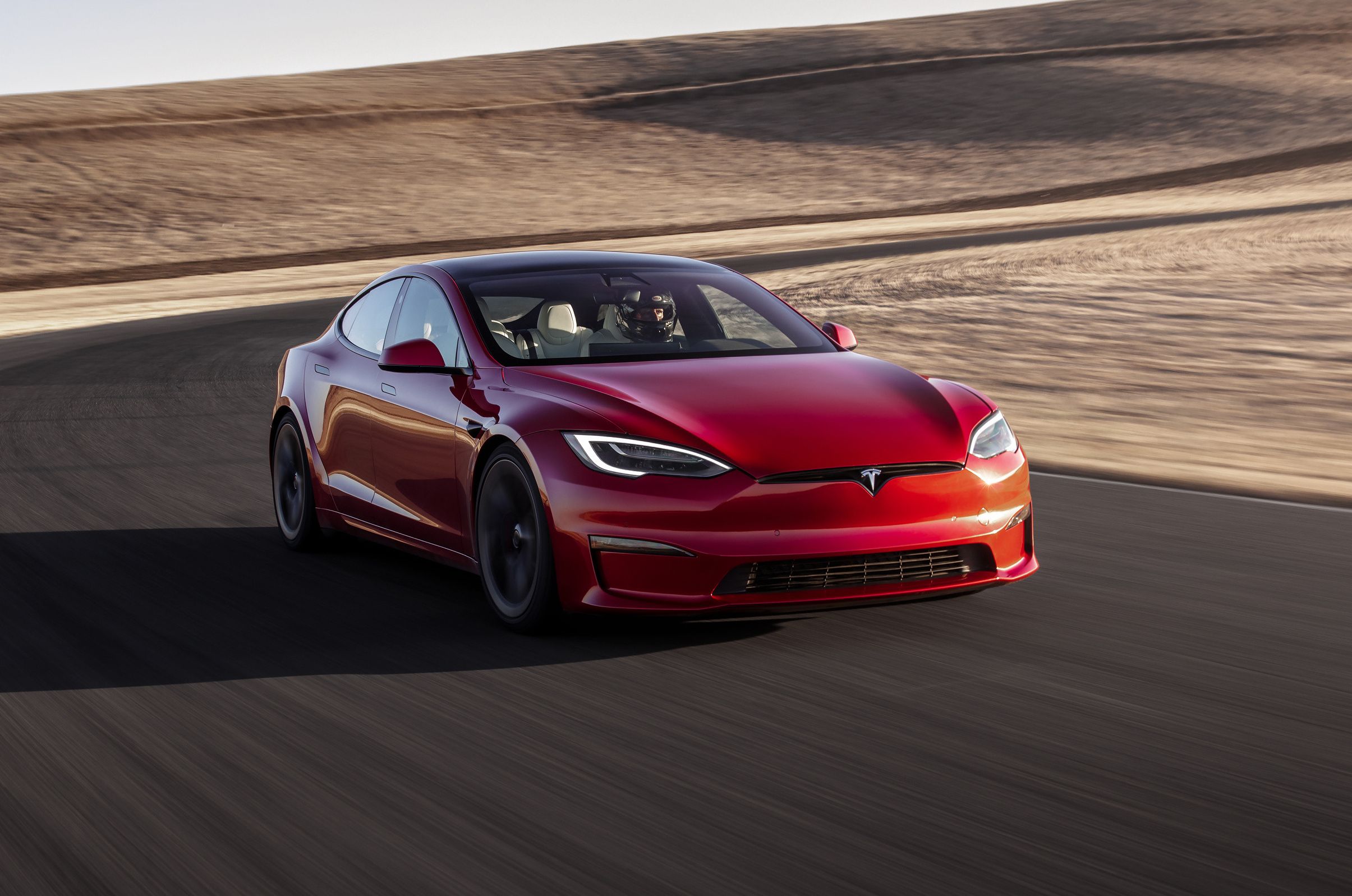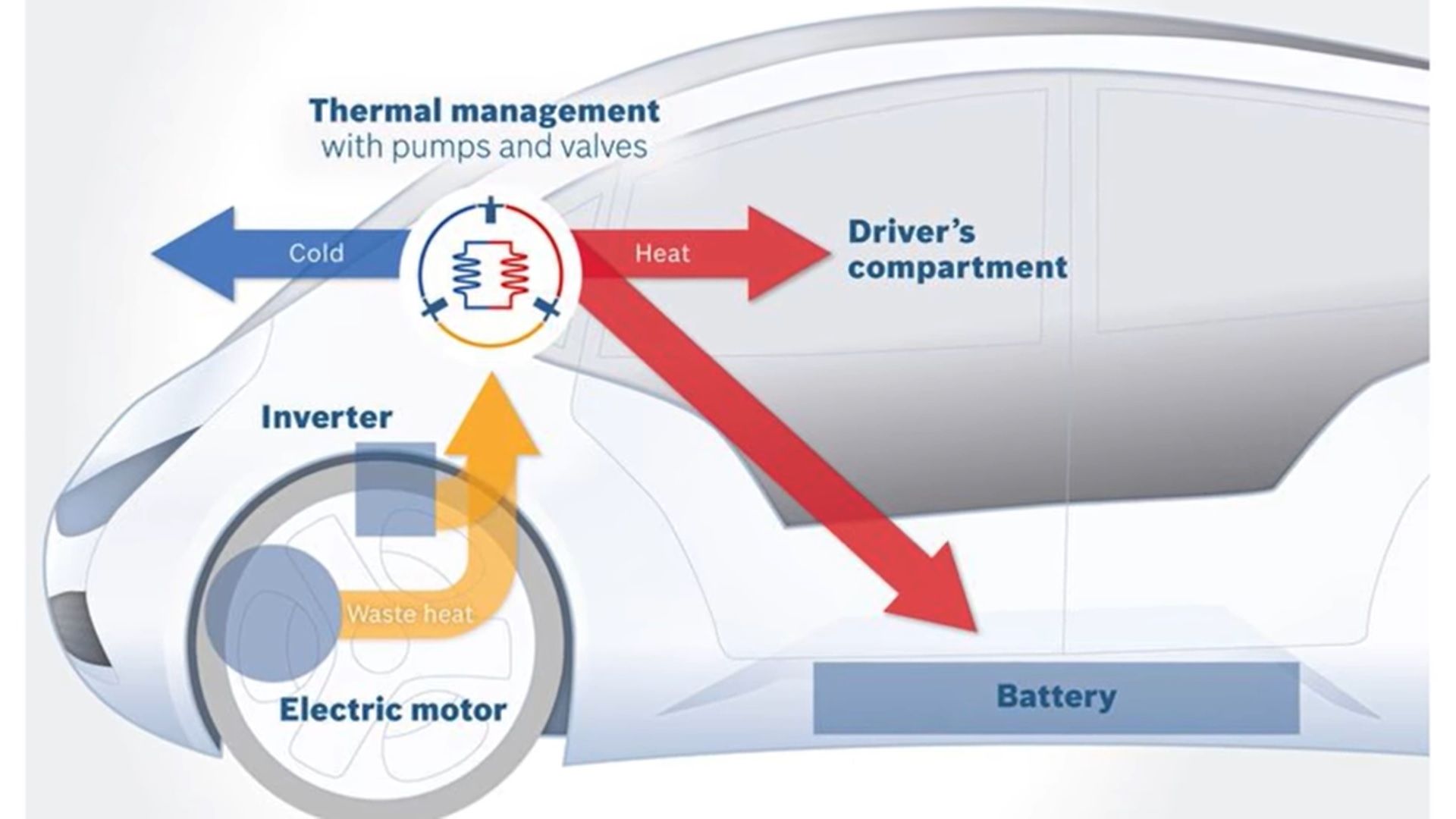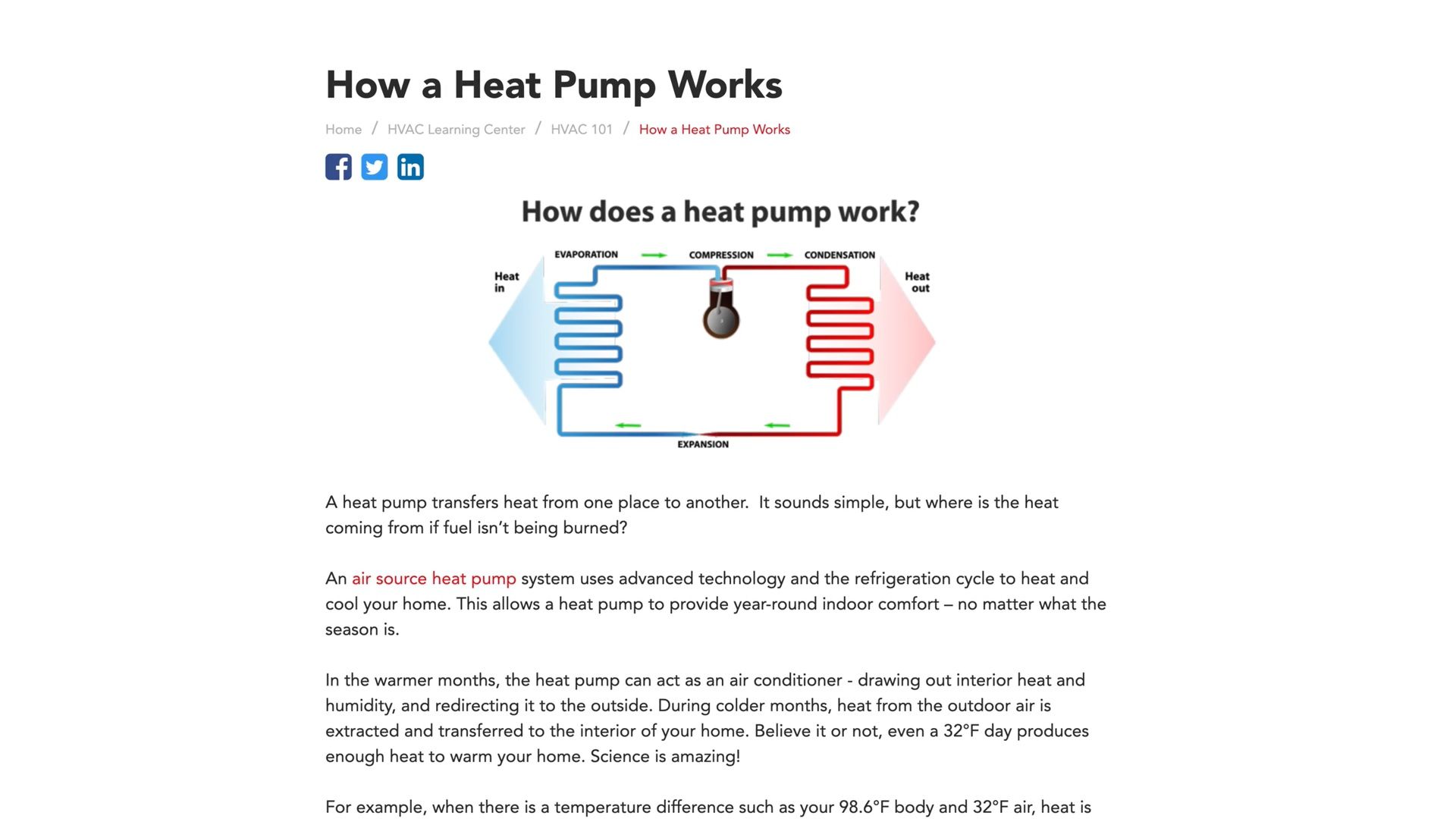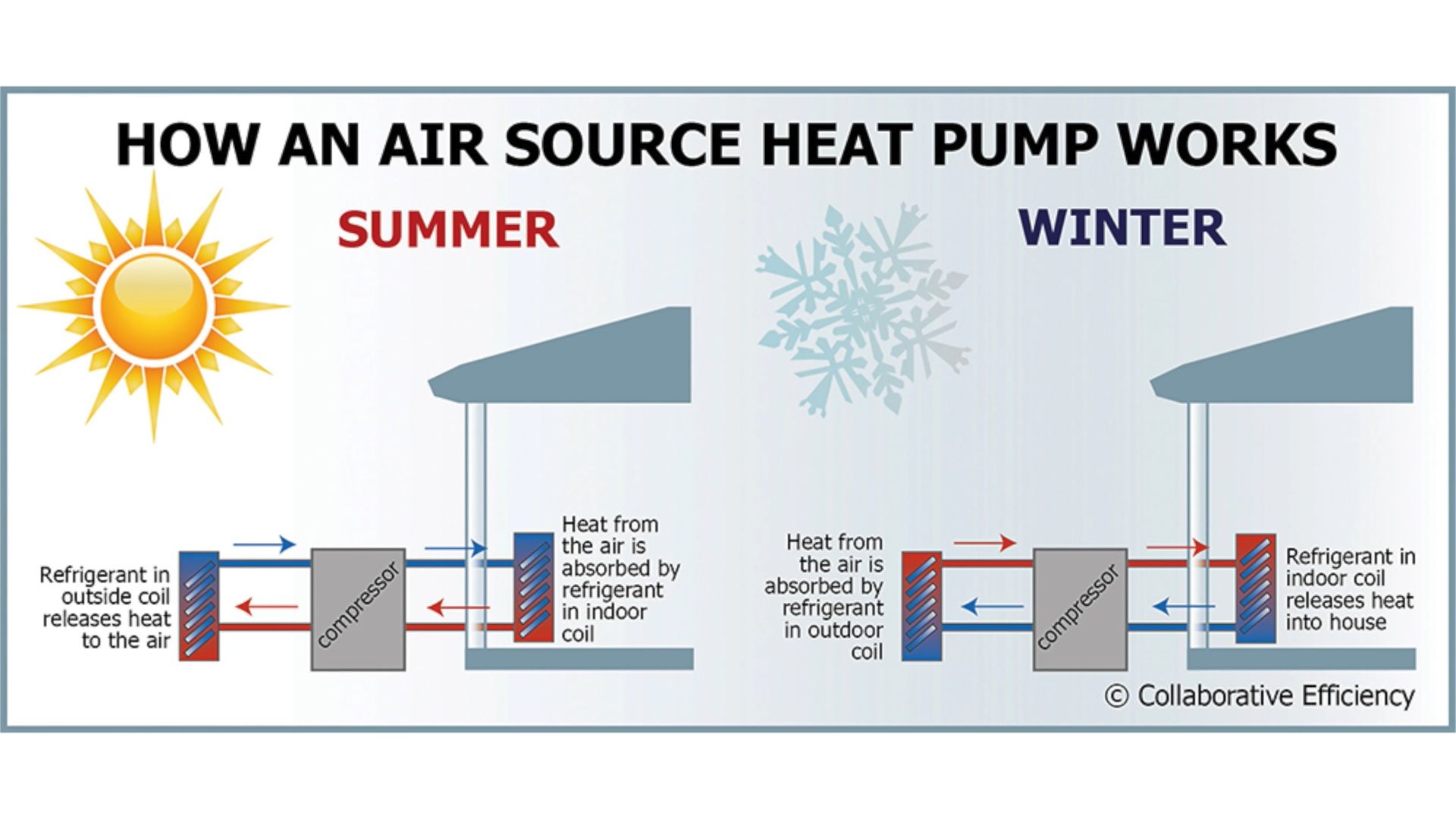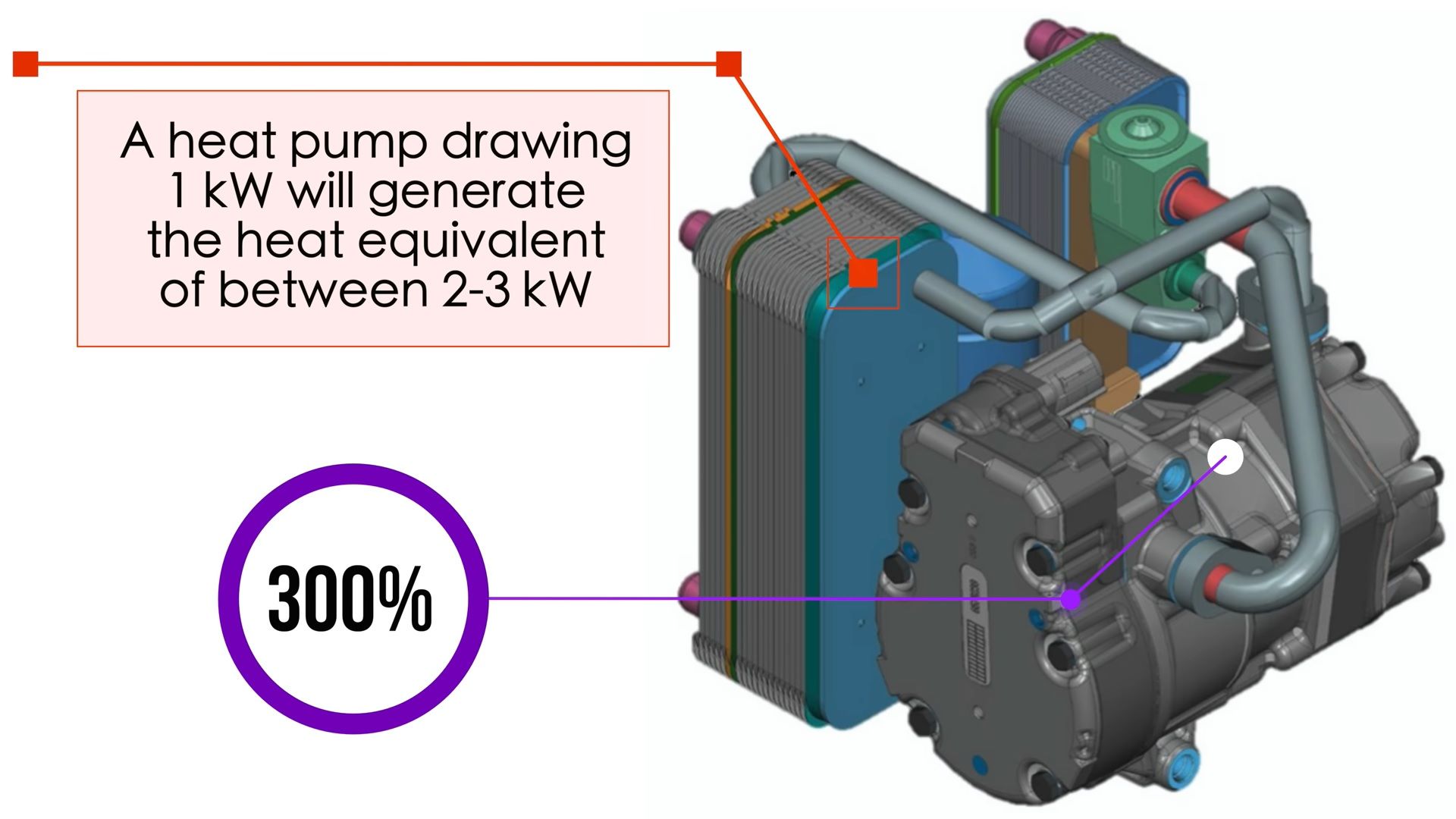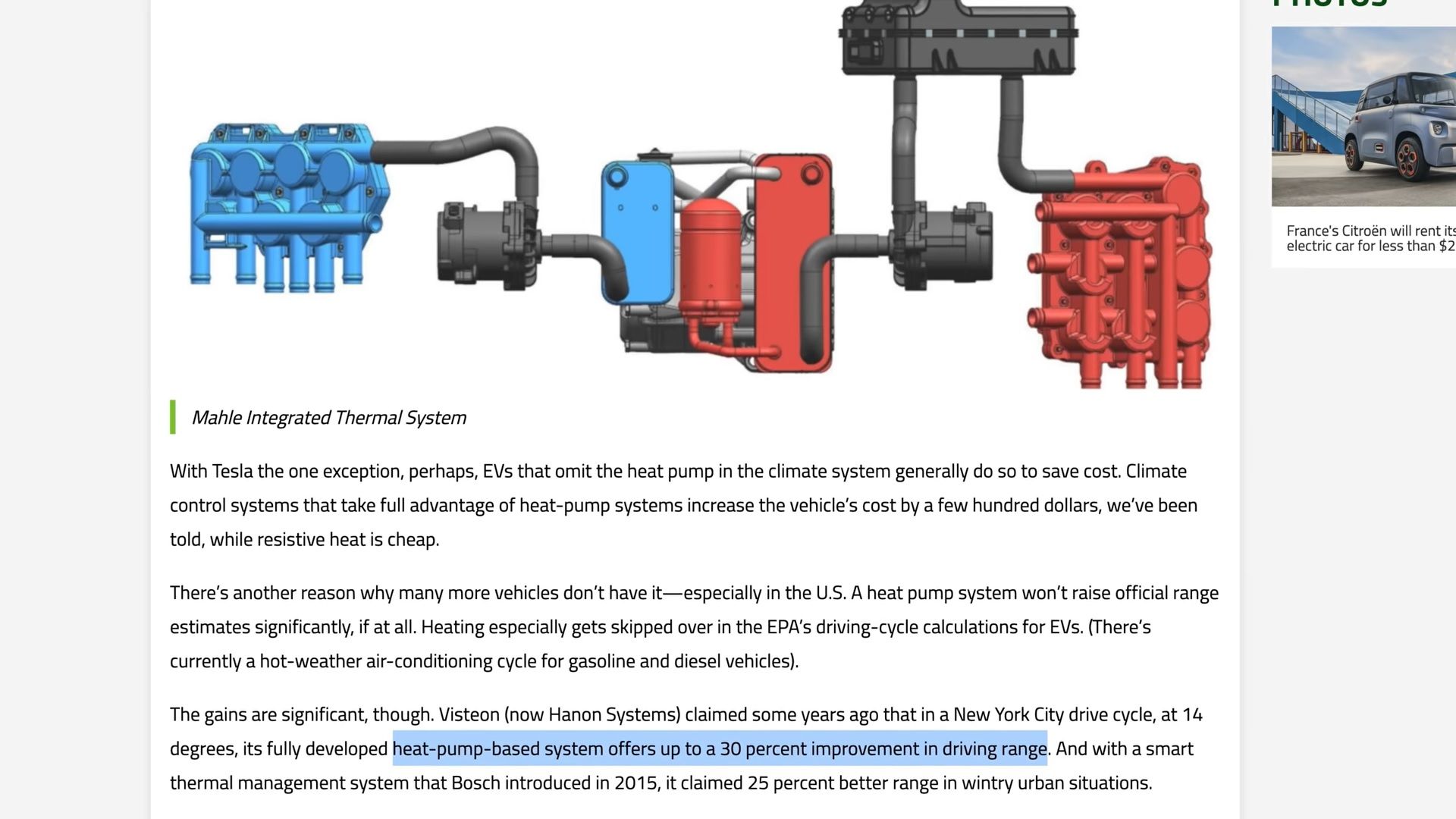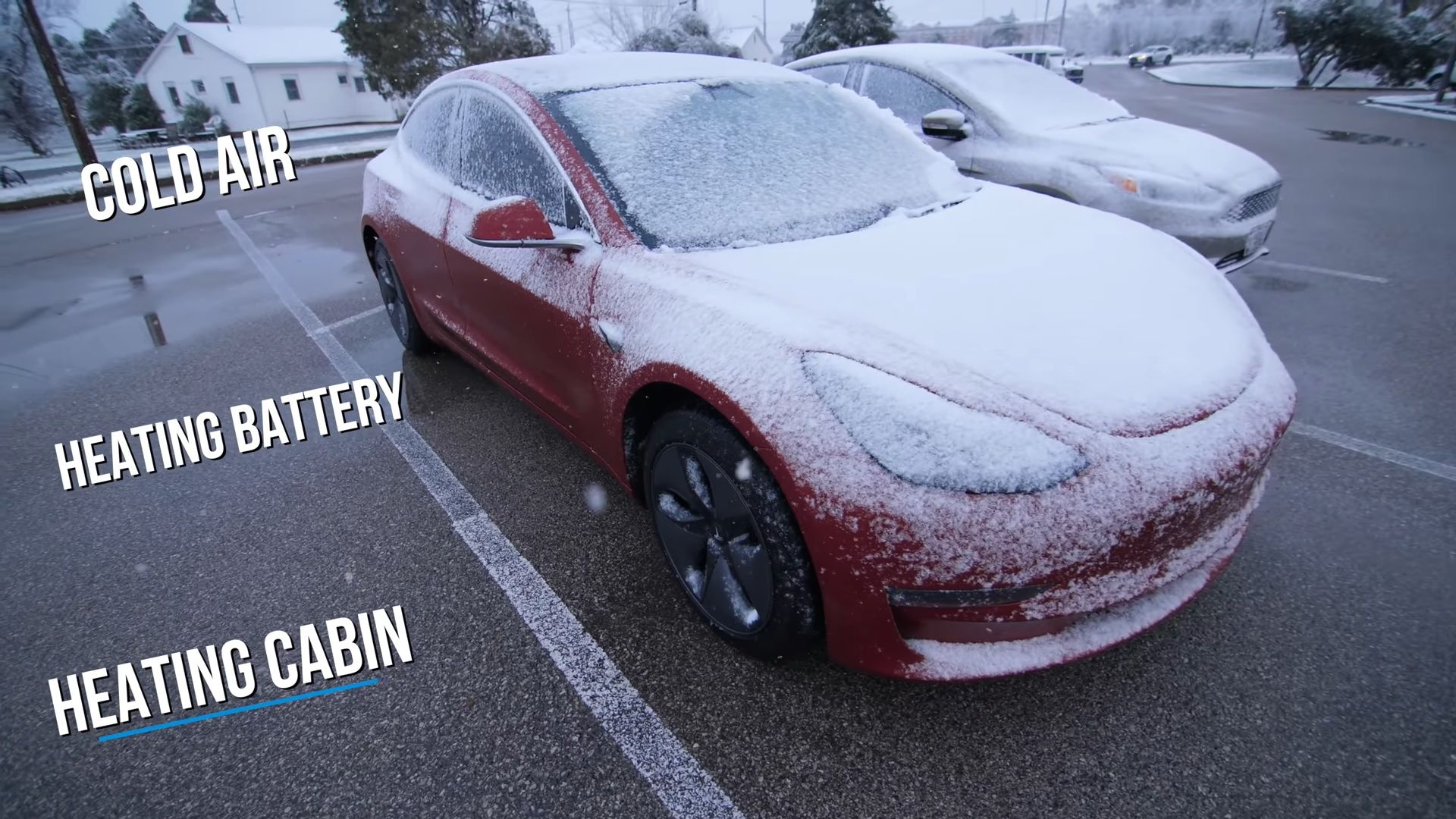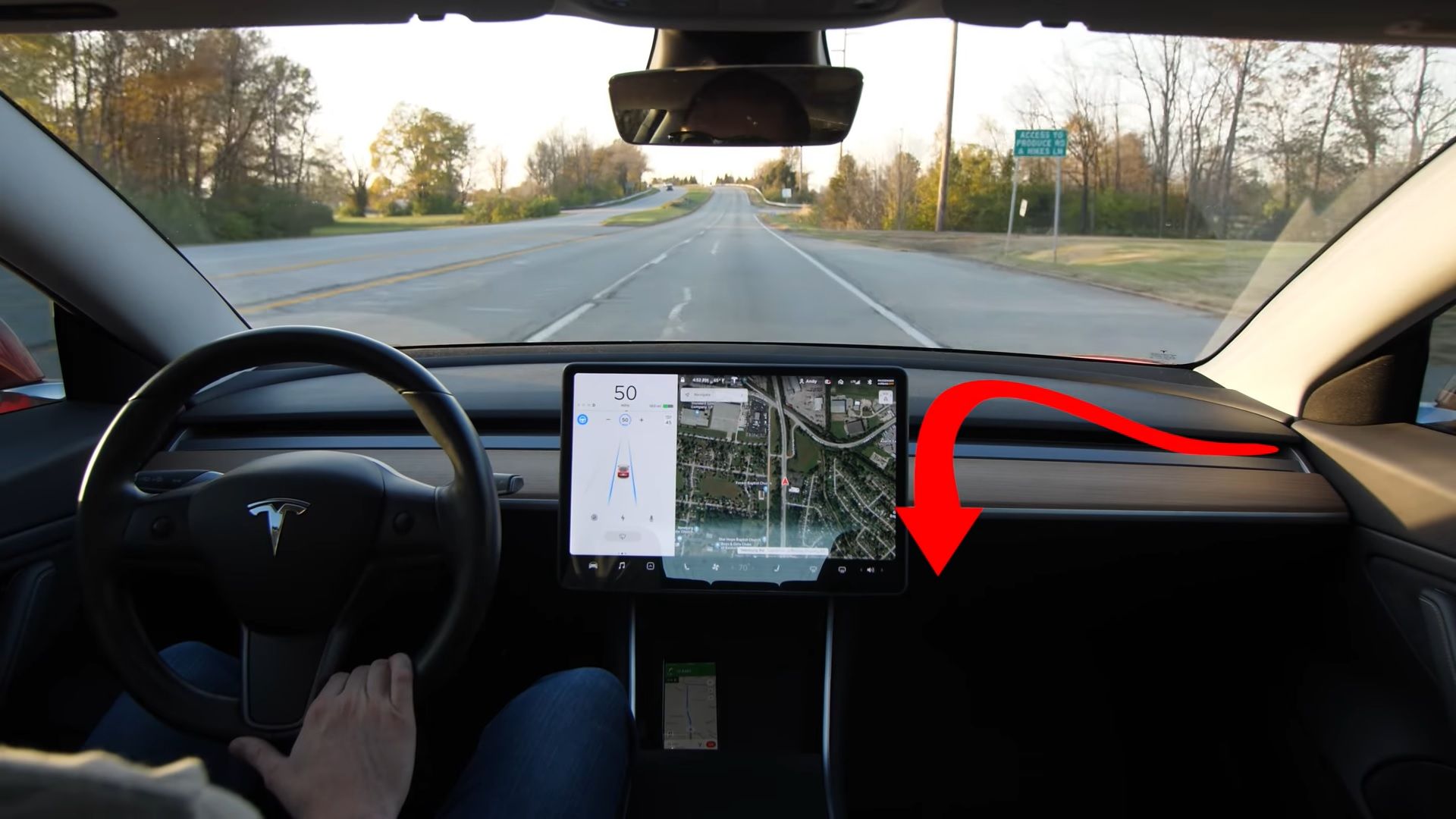The EV-olution of electric vehicles is happening rapidly and is inevitable no matter how much we detest it. While automakers have managed to figure out the performance and the body style aspects, one thing that still needs to be figured out is the range efficiency. Automakers can neither get away by plonking in small batteries, nor can they use very large battery packs for obvious reasons. So, they tend to look at other ways, like weight-reduction measures, work on the car’s aerodynamics to reduce drag and resistance, etc. But, one thing that is slowly picking pace is the use of heat pumps. Are heat pumps really so effective to push automakers to equip them in their EVs?
Why Are Heat Pumps Such A Big Deal?
“Every penny saved is every penny earned’. It’s the same case with EVs as well. Given that range anxiety is one of the biggest drawbacks of electric vehicles, automakers will welcome any kind of range-saving measures with their arms wide open. It’s no secret that electric cars suffer from range issues even more in extreme temperatures. Unlike internal combustion vehicles, EVs don’t produce that much heat and thus need a system to take care of the heating activities.
It is said that EVs are at their efficient-best at 68 degrees. But, you can’t have that temperature all year round or in all geographical locations. That’s where heat pumps come into play. At a time where automakers are fighting for range supremacy, no matter how little, heat pumps are nothing short of a boon for them.
A heat pump’s job is to redirect heat into the cabin and keep the temperature under control. Unlike the Electric Resistance Heating System which creates the heat from the energy drawn, a heat pump merely redirects it.
How Do Heat Pumps Work?
A heat pump’s basic job is to transfer heat energy from a source of heat into a thermal reservoir. If I had to put it in simple words, it works as an air conditioner, but in reverse. In air conditioners, the heat is trapped inside an area using a refrigerant and is then thrown outside. In the case of a heat pump, it works the same way, but there is a reverse valve that moves the hot air back inside. It just redirects the heat instead of generating it.
How Do Heat Pumps Help With Range?
Heat pumps are not exactly range extenders, but they are efficiency builders that reduce the use of the battery for your HVAC purposes. So, the energy that’s saved there will be used to run your car for a few more miles. Many factors lead to range depletion in extreme climate. For starters, a car driving through the cold air outside results in a higher drag. Then there’s the energy lost from heating the battery, and also the energy converted to heat the cabin and keep the passengers warm. So, for this, EVs need a system to take care of the heating activities.
Even though electric resistance heating systems are 100-percent efficient because they convert all of the energy consumed to heat energy. Heat pumps take this up by many notches. A heat pump can produce 3kW of thermal energy for every 1kW of electric energy, thus resulting in an efficiency of 300-percent. Since the heat pump uses less energy in heating the cabin, it results in a better range overall.
Is This A New Technology?
Not really. Heat pumps have been in existence for a long time now in EVs. Jaguar I-Pace and Nissan Leafs manufactured since 2013 are equipped with heat pumps. The reason why they are not widely popularized is because of one caveat – they do not work in temperatures below 25-30 degrees Fahrenheit. But, things are improving and companies now manage to get them to work in temperatures as low as -4 degrees Fahrenheit.
Does Tesla Use Heat Pumps?
The Model Y was the first Tesla vehicle to come equipped with a heat pump. Before that, all the other three cars - the Model 3, the Model S, and the Model X featured an electric resistance heating system. But, after first plonking them in the Model Y, Tesla has started equipping heat pumps on all its cars.
Elon Musk praised this technology on Twitter after a YouTuber stripped his Model Y’s frunk to reveal the heat pump. He further went on to explain the design of the heat pump:
Conclusion
Any extra load on the car or SUV directly results in a reduced range, and this is also one of the reasons why people are still skeptical to switch to EVs. Every EV automaker is trying to maximize range and heat pumps are the next big hack as they essentially take care of your HVAC while barely drawing any amount of energy to heat the cabin.
Watch this excellent video by Andy Slye explaining in detail how the heat pump works in the Tesla Model Y. Also, share your thoughts with us about heat pumps and other efficiency hacks in the comments section below.

